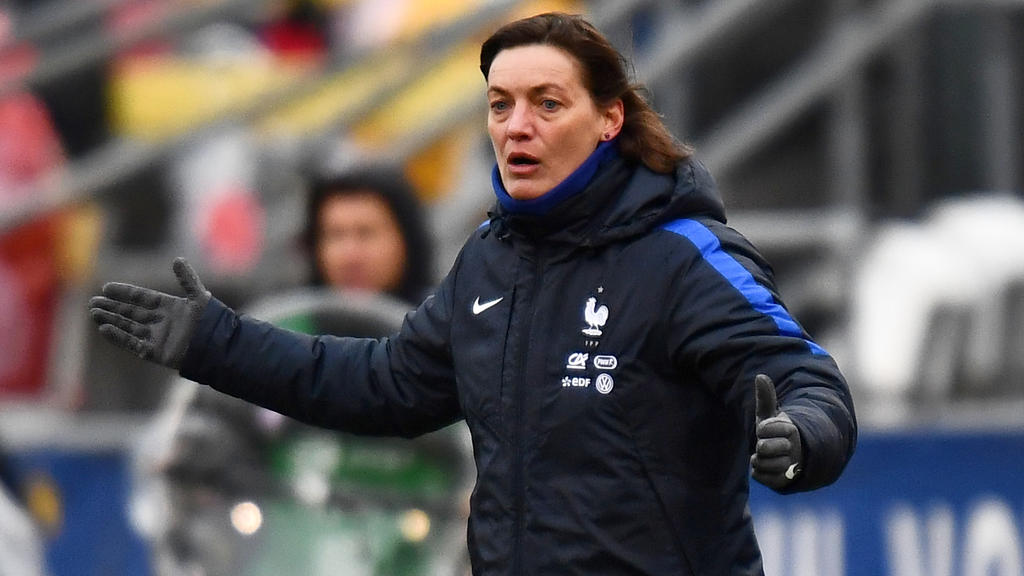Women in football face daily battle, says France coach

Trailblazing France coach Corinne Diacre said women in football face a constant struggle for acceptance and are often regarded as "objects" despite rising visibility and media coverage of female players.
Diacre made history when she became the first female coach of a French men's professional team in 2014, and she is now hoping to guide Les Bleues to the women's World Cup title next year on home soil.
But the former France captain, who amassed 121 caps and 14 international goals -- including the strike that took France to their maiden World Cup in 2003 -- said it hadn't been an easy journey.
"When I started in football in the 1980s, it was very rare to see a girl playing, we were really looked down upon. Because football was supposedly restricted to men," she told AFP in an interview.
"But unfortunately there are still too many negative things in football. (Not just) sexism, but I also hear a lot of talk about racism and these are things that are very difficult to put up with in 2018."
Diacre was speaking in Hong Kong during a FIFA-organised trip to work with Chan Yuen-ting, another history-maker who, in 2016, became the first woman coach to win a top-flight men's championship.
Attitudes to women in football came into focus this month when Ada Hegerberg, the first female winner of the prestigious Ballon D'Or, was asked if she knew how to "twerk", a sexually suggestive dance, as she received her award.
"Quite honestly, we're confronted by that kind of thing every day. I want to tell you that today nothing shocks me," said Diacre, who coached men's team Clermont in the French second tier for three seasons.
"Today, women are still objects," she added. "You still get asked questions about things that to my eyes are quite frankly completely ridiculous... but we still have to fight today about these issues.
"But we women in football today focus on the important things -- that is, our passion for football, and that's all we are about today."
Diacre said media coverage of women's football, including stepped-up live broadcasts of France's top league, had "developed enormously" ahead of the World Cup.
But despite such advances, she said life in football remained doubly complicated for women because they have to contend with factors not faced by men.
"It's true that it's more difficult for us, the difficulties are multiplied by two. We know it's always been like that, so we have to deal with it," the 44-year-old said.
"But there (can be) a lot of wickedness. Really a lot of wickedness, a bit of jealousy I think too. The worst thing is when you prove you're capable of success, it's complicated for them (to accept)."
When Diacre leads France at Paris's Parc des Princes against South Korea for the World Cup opener on June 7, it will underline how far she has travelled.
Diacre, already an international at the time, watched France's home victory at the 1998 men's World Cup in far more humble surroundings -- at a campsite, where she had a summer job as a physical instructor to fund her studies.
However, she said she wasn't day-dreaming about lifting the World Cup in Lyon in July, but was treating it more as a mission handed her by the president of the French Football Federation, Noel Le Graet.
"I'm not dreaming about it, but yes I've been given this objective by my president: to go and win the World Cup," Diacre said.
"I know what my objective is, I know it will be very important and very, very good for France to win this title," she added.
"But today, even if we're third in the FIFA rankings, we're not the favourites. So we enter this competition as outsiders."
France also face Norway and Nigeria in Group A as they bid to win the title for the first time.



![France [Women]](https://s.hs-data.com/bilder/wappen/klein/2526.gif?fallback=png)
